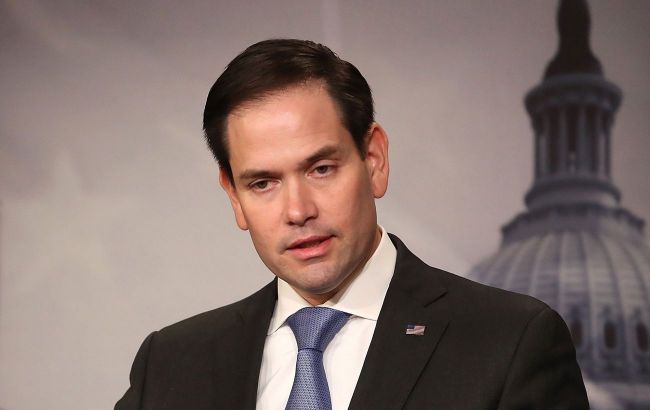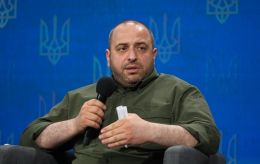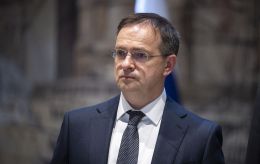Congress ready to impose sanctions on Russia: Rubio explains when it can happen
 US Senator Marco Rubio (Photo: Getty Images)
US Senator Marco Rubio (Photo: Getty Images)
Washington has given Moscow time to make progress in peace talks, but patience is running out — sanctions decisions are already underway, states US Secretary of State Marco Rubio.
According to him, the Trump administration had previously asked the Senate to give it some time to see if progress would be made in the peace talks.
The head of the State Department noted that for six to seven weeks now, the White House has quite clearly made the Russian side understand that this initiative (the imposition of sanctions – editor’s note) is moving forward.
“We've been communicating to the Russian side that this effort was- was being undertaken. That we anticipated that when all was said and done, it would have close to 80 cosponsors in the Senate, and I imagine a comparable percentage of support in the House, that that was an effort we couldn't stop and don't control, that ultimately, Congress and particularly the Republicans in the House and Senate, have tried to give the president space and time to negotiate something here,” Rubio said.
He added that Congress, especially the Republicans in both the House and the Senate, tried to give President Trump the space and time to reach some agreements.
“But we've- we've advised the Russians repeatedly now for almost two months that this was coming if no progress was made. So I think that's just coming to fruition now. And it's one of the- one of the things that I confirmed, again, being with Lindsey Graham this week in Turkey, is they're now up to 77. He thinks they could get close to 80 or more. And that's just- that's just a fact, and something we've told the Russians about for weeks was coming,” the Secretary of State noted.
Peace talks on Ukraine
On Friday, May 16, Ukraine-Russia talks on ending the war took place in Istanbul. These talks were proposed by Russian President Vladimir Putin instead of the comprehensive 30-day ceasefire suggested by Ukraine, the EU, and the US.
Putin refused to attend the negotiations in person and sent a delegation. US President Donald Trump and Ukrainian President Volodymyr Zelenskyy initially announced their intention to attend but ultimately declined and sent their delegations and representatives instead.
The negotiations in Istanbul lasted no more than an hour and ended almost without results. The Russian side continued to apply pressure and put forward demands similar to those from spring 2022: to recognize four regions and Crimea as Russian, to grant Ukraine a neutral status, to abandon demands for reparations from Russia, and to protect the rights of Russian speakers according to European standards. The only agreed point was to conduct a prisoner exchange on a 1000-for-1000 basis.
The Ministry of Foreign Affairs confirmed that the Russian delegation presented unacceptable demands that do not align with Ukraine’s interests.
US President Donald Trump believes that no progress in the peace process will occur until he personally meets with Putin.
Read more about the Ukraine-Russia talks in Istanbul in our analytical report.

